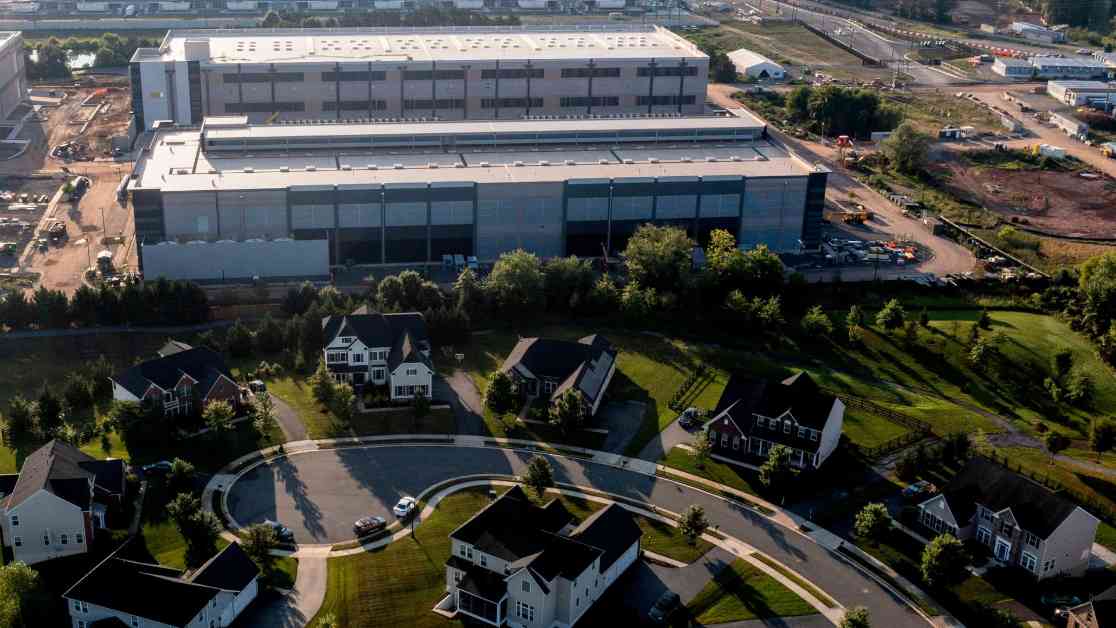Amazon Web Services, a subsidiary of Amazon that specializes in cloud computing, is making a significant investment of over $500 million in nuclear power. This investment is aimed at supporting the increasing need for clean energy, especially as Amazon expands its services into generative AI. One of the key goals of this investment is to help Amazon achieve its path to net-zero carbon emissions.
AWS recently announced three projects in various locations, from Virginia to Washington state. In Virginia, AWS has signed an agreement with Dominion Energy to explore the development of a small modular nuclear reactor (SMR) near Dominion’s North Anna nuclear power station. SMRs are advanced reactors with a smaller footprint, faster construction times, and produce no carbon emissions. These reactors will play a crucial role in meeting the growing power demands of data centers.
Tech giants like Google and Microsoft are also investing in nuclear power to support their data center operations. Google, for instance, announced that it will purchase power from SMR developer Kairos Power. Similarly, Constellation Energy is restarting the Three Mile Island plant to power Microsoft data centers. The demand for gigawatts of power is growing, and nuclear energy is seen as a reliable and efficient source to meet these needs.
Virginia is home to nearly half of all data centers in the U.S., with a significant concentration in Data Center Alley in Loudon County. Dominion Energy serves a large number of data centers, with individual requests for power ranging from 60 to 90 megawatts. The utility expects power demand to increase substantially in the next 15 years, and AWS anticipates that the new SMRs will provide at least 300 megawatts of power to the region.
Amazon’s investment in SMRs will not only benefit its data centers but also contribute to powering homes and businesses in the region. The company has also partnered with Energy Northwest, a consortium of state public utilities, to fund the development of four SMRs in Washington state. These reactors will provide energy directly to the grid and support Amazon’s operations in the region.
The development of SMRs is seen as a critical step in positioning Virginia and Washington as leading nuclear innovation hubs. Governor Glenn Youngkin has expressed support for this technology and emphasized its role in meeting future power needs. AWS plans to invest $35 billion by 2040 to establish multiple data center campuses in Virginia, highlighting the company’s long-term commitment to clean energy.
In addition to its investments in nuclear energy, Amazon’s Climate Pledge Fund has participated in a $500 million financing round for X-energy, a Maryland-based developer of SMRs and fuel. This partnership aims to drive the future of advanced nuclear energy in the commercial marketplace and support the integration of clean, safe, and reliable energy sources into the grid.
The Biden administration has also recognized the importance of clean energy production and has allocated $900 million in new funding for the deployment of SMRs. U.S. Energy Secretary Jennifer Granholm emphasized the need for additional power generation in the U.S., especially for critical infrastructure like data centers, and highlighted the importance of clean power for national security reasons.
Overall, Amazon’s investments in nuclear power reflect a broader trend among tech companies to prioritize clean energy sources to meet their growing power demands. By leveraging advanced nuclear technologies like SMRs, Amazon is not only supporting its own operations but also contributing to a more sustainable energy future.

















